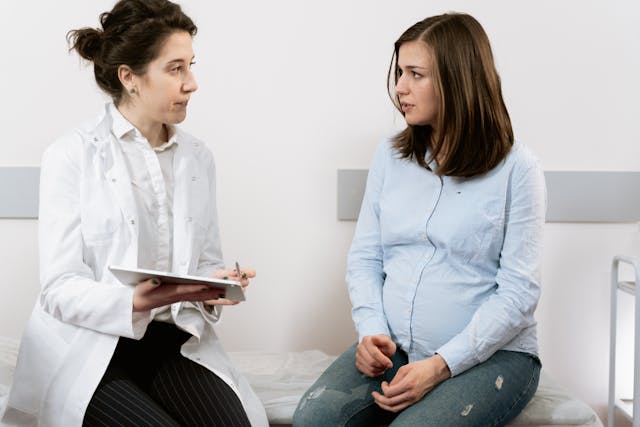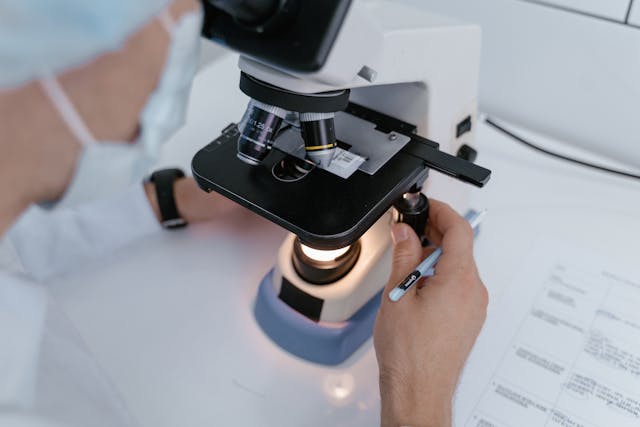Every woman should know about vaginal infection symptoms because vaginal infection is a common disease.
Vaginal infection (vaginitis) means inflammation of the vagina(birth canal). If the vulva(the outside part of the genitals) is also affected, this case is called vulvovaginitis.
In this article, we will discuss the causes, types, diagnosis, and treatment of vaginal infection. We will also learn how to prevent it. So let’s start.
What are the causes of vaginal infection
Vaginal infection symptoms could appear due to,
Bacteria, viruses, fungus, or parasite
Some organisms live normally in a healthy vagina. If they grow out of control, vaginal infection can happen.
Too much Gardnerella vaginalis bacteria can cause white discharge with a fishy smell. Also if the number of candida increases in a vagina, you can feel a discharge like a cottage cheese.
Trichomoniasis is a parasite spread during sex that causes a yellow-green discharge.
Chemical irritations
Soap, spray, or any chemical irritation of the vaginal’s skin. Your vagina might be sensitive to these products.
Hormonal imbalance
It means that the estrogen level changes due to menopause or pregnancy that causes vaginal dryness.
What about vaginal infection symptoms
All types of vaginitis almost cause the same symptoms
- Swelling and redness of the vulva
- Burning and itching sensation of the vagina
- Painful urination
- Pain with intercourse
- Abnormal discharge that may vary from watery to thick. It may also have different colors and smell bad.
Vaginal yeast infection
As we mentioned, it is a type of vaginitis caused by a fungal infection.It has the same vaginal infection symptoms as other types.
The causes of yeast overgrowth
Broad-spectrum antibiotics kill healthy bacteria in your vagina so yeast overgrowth happens. Also, pregnancy or increased estrogen hormone levels cause yeast overgrowth.
Women with uncontrolled diabetes are at higher risk of yeast infections than women with controlled blood sugar. And women with lowered immunity are at greater risk of yeast infections than others.
How to prevent yeast vaginitis
Avoid unnecessary antibiotic use. For example, don't take antibiotics if you have viral infections
Avoid wearing tight-fitting underwear, scorching baths, scented pads, or tampons are prohibited.
Don’t douche that can remove the normal bacteria that protect you from yeast infections.
Home remedies for yeast infections
Apple cider vinegar inhibits the growth of candida albicans which causes yeast infections. You can drink it every morning.
You should dilute apple cider vinegar, and mix 1 spoon of apple cider vinegar into a glass of water. Of course, you cannot apply apple cider vinegar to the vagina as it will cause burning.
Coconut oil has antifungal properties, but it’s better to ask your doctor before applying it to the affected area.
Garlic is an antifungal agent. You can add more fresh garlic to the food.
Vitamin C supplements or eating fruits rich in vitamin C increases the body's immunity to fight off the yeast infection.

Vaginitis and pregnancy
As we discussed before, pregnancy is a cause of vaginitis due to a decrease in immunity and an increase in estrogen levels in the blood.
We also mentioned all vaginal infection symptoms during pregnancy like itching, white discharge with an unpleasant odor, and burning sensation.
In some cases, vaginal infection during pregnancy doesn’t have any symptoms which makes it impossible for pregnant women to detect it.
Vaginitis affects the fetus
It can affect the fetus indirectly by making the mother’s body unable to nourish the fetus. The pregnant woman may need to take medication that may affect the baby.
It can also cause premature labor.
Tips for pregnant women
- Do not douche
- Take a shower immediately after swimming
- Do not use vaginal perfume
- Gentle exercise and get plenty of rest so your body can fight infections
- Do not take too much sugar.
- After using the toilet, wipe from front to back
- Vitamin C intake
- Regular gynecological checkups
- Wear cotton underwear
- Eat more yogurt
Can yeast infection affect a little girl?
Vaginitis may occur in females of any age (newborns, toddlers, and children).
Antibiotics( are prescribed to kill harmful bacteria, but they also kill some good bacteria that protect you from vaginal infections), uncontrolled diabetes, and changes in hormone levels before puberty are the causes of vaginitis in little girls.
She will have the same vaginal infection symptoms as mentioned before.
It is important to see the specialist and take the proper medications. Topical antifungal cream and ointment are the best to treat it.
Yeast infections aren’t dangerous unless they get into the bloodstream of the body parts.
Please ensure your young girl eats healthy food, gets enough sleep, and wears cotton underwear.
Teach the young to wipe from front to back to keep this area clean and dry.

How are vaginal infections diagnosed?
If you have vaginal infection symptoms, you should immediately see the doctor for examination.
Medical history
The doctor will ask about any previous vaginal infection or sexually transmitted disease.
Pelvic examination
The doctor will examine your external genitals and vagina
A sample from vaginal discharge
The doctor will send a sample for examination under a microscope that helps him to prescribe the most effective treatment for your case.
What are the treatments for vaginal infection symptoms
The doctor gives you the treatment according to the cause of vaginitis, and how bad the vaginal infection symptoms are.
Antifungal cream or suppository is used for yeast infections.
Antibiotics such as metronidazole are prescribed for bacterial infections.
Oral metronidazole is prescribed for trichomoniasis.The patient’s sex partner also should be treated.
Atrophic vaginitis is treated by hormonal therapy.
In conclusion, vaginal infection symptoms are itching, abnormal discharge, bad odor, redness and burning sensation. There are many causes and according to the cause, the specialist determines the proper treatment.
It can affect females at any age. Uncontrolled diabetes, pregnancy, broad-spectrum antibiotics with no need, and impaired immunity are the risk factors for vaginitis.
Regular check-ups are necessary as some vaginitis has no symptoms.
Eating yogurt, taking vitamin C, and keeping this area clean and dry are very important.
Stay safe my beautiful lady as you deserve the best !
Read more about;


You must be logged in to post a comment.